January 12, 2023
Federal Funding Opportunities
The Earth System Science and Modeling Division programs address climate challenges by managing competitive research programs that support high-priority science initiatives. The programs advance our understanding of the Earth’s climate system and foster the application and use of this knowledge to improve the resilience of our Nation and its partners. The National Ocean Service provides data, tools, and services that support coastal economies and their contribution to the national economy, especially in the area of preparedness and risk reduction. This opportunity is a joint collaboration with the National Weather Service, to develop and support research on the topic of coastal inundation.
The goal of this funding opportunity is to support collaborative research and community engagement projects that improve climate adaptation planning and action. Collaborative research and community engagement are defined as the process of developing trusted and sustained partnerships between scientists, decision-makers, and communities that lead to shared understandings of climate adaptation needs and the co-generation of credible and actionable climate knowledge to support community defined plans, including implementable solutions. Outcomes from this work will support and inform the identification of equitable and inclusive infrastructure investments that mitigate flooding and wildfire risks.
The Office of Naval Research is providing a funding opportunity for science, technology, engineering, and math (STEM) education programs and activities, which is formal or informal education that is primarily focused on physical and natural sciences, technology, engineering, social sciences, and mathematics disciplines, topics, or issues, including environmental science education or stewardship. STEM education programs and activities that could be supported by this funding opportunity include one or more of the following as the primary objective:
- Develop learners’ knowledge, skill, or interest in STEM.
- Attract students to pursue certifications, licenses, or degrees (two-year degrees through post-doctoral degrees) or careers in STEM fields.
- Provide growth and research opportunities for post-secondary, college and graduate students in STEM fields, such as working with researchers or conducting research that is primarily intended to further education.
- Improve mentor/educator (K-12 pre-service or in-service, post-secondary, and informal) quality in STEM areas.
- Improve or expand the capacity of institutions to promote or foster STEM fields.
This funding opportunity will support activities to advance efficiency improvements and enhance manufacturing competitiveness through technological innovation by focusing on three main topic areas:
- Next Generation Materials and Manufacturing Processes;
- Secure and Sustainable Materials; and
- Energy Technology Manufacturing.
The goals of this multi-topic opportunity are to:
- Validate and demonstrate next generation materials and manufacturing processes including domestic pilot demonstrations and related technologies to support the transition to U.S. manufacturing;
- Enable environmentally and socially responsible domestic manufacturing with diversified domestic supply of feedstocks including from recycled goods; and
- Mature nascent technologies, processes, and methods that improve the performance and market penetration of clean energy technologies and emerging building efficiency technologies.
The Department of Energy program in Accelerator Research and Development and Production seeks applications to conduct cross-cutting use-inspired basic research and development to advance accelerator science and technology and domestic supplier development that supports the Office of Science’s activities in physical sciences research, and which is of broader benefit to other U.S. government agencies and industry.
U.S. Department of Energy; Office of Science releases topic-specific Reaching a New Energy Sciences Workforce Funding Opportunities
Reaching a New Energy Sciences Workforce (RENEW) aims to build foundations for Office of Science (SC) research and training at institutions historically underrepresented in the SC research portfolio. RENEW leverages SC’s unique national laboratories, user facilities, and other research infrastructures to provide undergraduate and graduate training opportunities for students and academic institutions not currently well represented in the U.S. science and technology (S&T) ecosystem. The hands-on experiences gained through RENEW will open new career avenues for participants, forming a nucleus for a future pool of talented young scientists, engineers, and technicians with the critical skills and expertise needed for the full breadth of SC research activities. Principal Investigators, key personnel, and students of RENEW awards will be invited to participate in researcher meetings and/or SC-wide professional development and collaborator events. RENEW funding opportunity announcements have been issued in the following areas:
- Fusion Energy Science pre-applications due February 20, 2023
- Biological and Environmental Research pre-applications due February 21, 2023
- Advanced Scientific Computing Research pre-applications due February 21, 2023
- Isotope R&D and Production pre-applications due February 21, 2023
- High Energy Physics applications due March 31, 2023
- Nuclear Physics applications due April 17, 2023
This funding opportunity seeks to prevent or delay onset of type 2 diabetes among adults with prediabetes and improve self-care practices, quality of care, and early detection of complications among people with diabetes. Additionally, this funding opportunity will support implementation of evidence-based, family-centered childhood obesity interventions as a type 2 diabetes risk reduction strategy. All work supported under this funding opportunity will focus on reducing health disparities and achieving health equity for priority populations, defined as those who have systematically experienced greater obstacles to health based on their racial or ethnic group; religion; socioeconomic status; gender; age; mental health; cognitive, sensory, or physical disability; sexual orientation or gender identity; geographic location; or other characteristics historically linked to discrimination or exclusion.
The overarching goal of this National Heart, Lung, and Blood Institute Research Education Program is to support mentoring and research education activities that enhance the diversity of the biomedical, behavioral and clinical research workforce. The major goal of this program is to establish long-term mentoring that will enable junior faculty who are underrepresented in the biomedical sciences to develop a research program and obtain NIH funding. This funding opportunity specifically invites applications from senior faculty, established researchers, and experienced mentors to develop and direct the Summer Institutes of the Programs for Inclusion and Diversity among Individuals Engaged in Health-Related Research (PRIDE) program in order to mentor promising eligible junior faculty who have specific scientific interests in heart, lung, blood and sleep disorders research.
The purpose of this funding announcement is to encourage innovative research that will inform and support the delivery of high-quality, continuously improving mental health services to benefit the greatest number of individuals with, or at risk for developing, a mental illness.
The purpose of this program is to fund public-private partnerships to develop, strengthen, and scale promising and evidence-based training models in H-1B industries and occupations critical to meeting the goals of the Bipartisan Infrastructure Law (BIL) and to maximize the impact of these investments. The country will need a proficient workforce to fill the good-paying jobs created by this historic investment, and this grant program will train job seekers in advanced manufacturing; information technology; and professional, scientific, and technical services occupations that support renewable energy, transportation, and broadband infrastructure sectors. The Building Pathways to Infrastructure Jobs Grant Program represents a down payment for the future skilled workforce needs that are being developed through the BIL investments by investing in the development and expansion of the workforce partnerships that will be needed to build equitable pathways to good infrastructure jobs. The Infrastructure Investment and Jobs Grant Program serves dual purposes by implementing and scaling worker-centered sector strategies to support the workforce necessary for successful implementation of the BIL.
The Electrical, Communications and Cyber Systems Division (ECCS) supports enabling and transformative engineering research at the nano, micro, and macro scales that fuels progress in engineering system applications with high societal impact. This includes fundamental engineering research underlying advanced devices and components and their seamless penetration in power, controls, networking, communications, or cyber systems. The research is envisioned to be empowered by cutting-edge computation, synthesis, evaluation, and analysis technologies and is to result in significant impact for a variety of application domains in healthcare, homeland security, disaster mitigation, telecommunications, energy, environment, transportation, manufacturing, and other systems-related areas. ECCS also supports new and emerging research areas encompassing 5G and Beyond Spectrum and Wireless Technologies, Quantum Information Science, Artificial Intelligence, Machine Learning, and Big Data. ECCS, through its ASCENT program, offers the engineering community the opportunity to address research issues and answer engineering challenges associated with complex systems and networks that are not achievable by a single principal investigator or by short-term projects and can only be achieved by interdisciplinary research teams. ECCS envisions a connected portfolio of transformative and integrative projects that create synergistic links by investigators across its three ECCS clusters: Communications, Circuits, and Sensing-Systems, Electronics, Photonics and Magnetic Devices, and Energy, Power, Control, and Networks, yielding novel ways of addressing challenges of engineering systems and networks. ECCS seeks proposals that are bold and ground-breaking, transcend the perspectives and approaches typical of disciplinary research efforts, and lead to disruptive technologies and methods or enable significant improvement in quality of life.
The Pathways into the Geosciences – Earth, Ocean, Polar and Atmospheric Sciences (GEOPAths) funding opportunity invites proposals that specifically address the current needs and opportunities related to education, learning, training and professional development within the geosciences community through the formation of STEM Learning Ecosystems that engage students in the study of the Earth, its oceans, polar regions and atmosphere. The primary goal of the GEOPAths funding opportunity is to increase the number of students pursuing undergraduate and/or postgraduate degrees through the design and testing of novel approaches that engage students in authentic, career-relevant experiences in geoscience. In order to broaden participation in the geosciences, engaging students from historically excluded groups or from non-geoscience degree programs is a priority. This solicitation features three funding tracks that focus on Geoscience Learning Ecosystems (GLEs):
- Informal Networks: Collaborative projects in this track will support geoscience learning and experiences in informal settings for teachers, pre-college (e.g., upper level high school) students, and early undergraduates in the geosciences.
- Undergraduate Preparation: Projects in this track will engage pre-college and undergraduate students in extra-curricular experiences and training in the geosciences with a focus on service learning and workplace skill building.
- Graduate Opportunities: Projects in this track will improve research and career-related pathways into the geosciences for undergraduate and graduate students through institutional collaborations with a focus on service learning and workplace skill building.
National Science Foundation Biodiversity on a Changing Planet proposals due March 29, 2023
The biodiversity found in nature is essential for healthy ecosystems and human well-being, however, the disruption and decline of Earth’s biodiversity is currently occurring at an unprecedented rate. The resulting shifts in biodiversity dynamic, including changes in the scope and structure of biodiversity, are increasingly significant but not well-understood. Shifting biodiversity dynamics in turn influence functional biodiversity, which includes the roles of traits, organisms, species, communities, and ecosystem processes in natural systems. Changes in biodiversity dynamics and functional biodiversity are essential factors for future planetary resilience under environmental change, including climate change. The connection between functional biodiversity and biodiversity dynamics on a changing planet is the main focus of the Biodiversity on a Changing Planet program. The program encourages proposals that integrate pattern- and process-based research approaches in the context of the constant gain, loss, and reorganization of biodiversity on a changing planet. To advance a comprehensive understanding of functional biodiversity requires a highly integrative approach, including consideration of spatial and temporal dimensions from the organismal to the ecosystem level and from recent to deep timescales. The program therefore places a strong emphasis on multidisciplinary research among climatic, geological, paleontological, ecological, organismal, phylogenetic and evolutionary sciences.
The overarching vision of this program is to support multi-disciplinary research to sustain economic competitiveness, to promote worker well-being, lifelong and pervasive learning, and quality of life, and to illuminate the emerging social and economic context and drivers of innovations that are shaping the future of jobs and work. The specific objectives of the Future of Work at the Human-Technology Frontier program are to:
- facilitate inter-disciplinary or convergent research that employs the joint perspectives, methods, and knowledge of behavioral science, computer science, economics, engineering, learning sciences, research on adult learning and workforce training, and the social sciences;
- develop deeper understandings of how human needs can be met and values respected in regard to how new technologies, conditions, and work experiences are changing;
- support deeper understanding of the societal infrastructure that accompanies and leads to new work technologies and new approaches to work and jobs, and that prepares people for the future world of work;
- encourage the development of a research community dedicated to designing intelligent technologies and work organization and modes inspired by their positive impact on individual workers, the work at hand, the way workers learn and adapt to technological change, creative and inclusive workplaces (including remote locations, homes, classrooms, or virtual spaces), and benefits for social, economic, educational, and environmental systems at different scales;
- promote deeper basic understanding of the interdependent human-technology partnership to advance societal needs by advancing design of intelligent technologies that operate in harmony with human workers, including consideration of how adults learn the new skills needed to interact with these technologies in the workplace, and by enabling broad and diverse workforce participation, including improving accessibility for those challenged by physical, learning or cognitive impairment and other visible and invisible disabilities; and
- understand, anticipate, and explore ways of mitigating potential risks including inequity arising from future work at the human-technology frontier.
National Science Foundation Partnerships for Innovation proposals due July 12, 2023
The Partnerships for Innovation (PFI) Program within the Division of Industrial Innovation and Partnerships (IIP) offers researchers from all disciplines of science and engineering the opportunity to perform translational research and technology development, catalyze partnerships and accelerate the transition of discoveries from the laboratory to the marketplace for societal benefit. This solicitation offers two broad tracks for proposals.
The Technology Translation (PFI-TT) track offers the opportunity to translate prior national Science Foundation (NSF) funded research results in any field of science or engineering into technological innovations with promising commercial potential and societal impact. PFI-TT supports commercial potential demonstration projects for academic research outputs in any NSF-funded science and engineering discipline. This demonstration is achieved through proof-of-concept, prototyping, technology development and/or scale-up work. Concurrently, students and postdoctoral researchers who participate in PFI-TT projects receive education and leadership training in innovation and entrepreneurship. Successful PFI-TT projects generate technology-driven commercialization outcomes that address societal needs.
The Research Partnerships (PFI-RP) track seeks to achieve the same goals as the PFI-TT track by supporting instead complex, multi-faceted technology development projects that are typically beyond the scope of a single researcher or institution and require a multi-organizational, interdisciplinary, synergistic collaboration. A PFI-RP project requires the creation of partnerships between academic researchers and third-party organizations such as industry, non-academic research organizations, federal laboratories, public or non-profit technology transfer organizations or other universities. Such partnerships are needed to conduct use-inspired research on a stand-alone larger project toward commercialization and societal impact.






